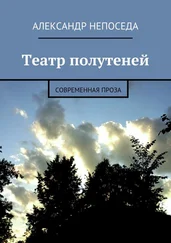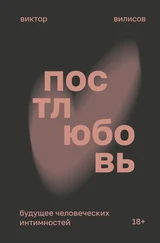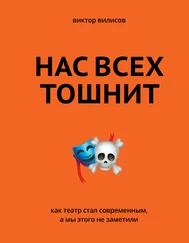Sandahl C, Auslander P. Bodies in Commotion: Disability and Performance. Ann Arbor: University of Michigan Press; 2009.
Wilcox D. Performance: A Critical Introduction. By Marvin Carlson. London and New York: Routledge, 1996.
Political Performances: Theory and Practice, edited by Susan C. Haedicke, et al., Editions Rodopi, 2009.
Greatest Shows on Earth: World Theatre from Peter Brook to the Sydney Olympics, edited by John Freeman, Libri Publishing, 2012.
Carlson M. Theatre Is More Beautiful Than War: German Stage Directing in the Late Twentieth Century. Iowa City: University of Iowa Press; 2009.
Nadel, Myron. Looking at Contemporary Dance: A Guide for the Internet Age, Princeton Book Company, 2012.
Weijdom, Joris. Mixed Reality and The Theatre of The Future, IETM, 2017.
Bonet, Lluis & Négrier, Emmanuel & Guérin, Michel. Music festivals a changing world, 2016.
Klaic, Dragan. Resetting the Stage: Public Theatre Between the Market and Democracy, Intellect Books Ltd, 2013.
Political Performances: Theory and Practice, edited by Susan C. Haedicke, et al., Editions Rodopi, 2009.
Grau, Andree, and Stephanie Jordan. Europe Dancing: Perspectives on Theatre, Dance, and Cultural Identity, Routledge, 2000.
Carter, Alexandra. Rethinking dance history: a reader. Routledge, 2004.
‘Sensuality and Sexuality’. Journal of Theatre and Performing Arts Vol.9, No.1, 2015.
Reinsone S, Reinsone, Guna Zeltiņa with Sanita. Text in Contemporary Theatre: The Baltics within the World Experience.
Legacy of Opera: Reading Music Theatre as Experience and Performance, edited by Dominic Symonds, and Pamela Karantonis, Editions Rodopi, 2013
Salzman E, Desi T. The New Music Theater: Seeing the Voice, Hearing the Body. New York: Oxford University Press; 2008.
Manuel, P. Theatre Without Actors: Rehearsing New Modes of co-Presence, Utrecht University Repository, 2017.
Тексты
Lehman, Hans-Thies Dramatic and Post-dramatic Theatre: Ten Years After / Critical Stages, 2015 – Issue № 11 – 150 pp.
Sidiropoulou, Avra The theatre of the director-auteur: text, form and authorship, 2009.
Quinn, Bernadette Arts Festivals and the City, 2005 – urban studies, 42. 927–943 pp.
Being Contemporary – PAJ: A Journal of Performance and Art, Vol. 34, No. 1 (JANUARY 2012), pp. 93–110.
Bell J. Can Theatre Change Lives and Impact Underserved Communities? Theatre Survey. 2016;57(3): 441–51.
Auslander, Philip. “Digital Liveness: A Historico-Philosophical Perspective.” PAJ: A Journal of Performance and Art , vol. 34, no. 3, 2012, pp. 3–11.
Hauptfleisch, T. Eventifying Identity: Festivals in South Africa and the Search for Cultural Identity. New Theatre Quarterly, 22 (2), 181–198, 2006.
Sauter, W. Introduction: Festival Culture in Global Perspective. Theatre Research International, 30 (3), 237–239, 2005.
Négrier, Emmanuel Festivalisation: Patterns and Limits, 2014.
Rumens, Nick and Broomfield, John Gay men in the performing arts: Performing sexualities within ‘gay-friendly’ work contexts, 2014.
Goebbels, Heiner, and Stathis Gourgouris. “Performance as Composition”. PAJ: A Journal of Performance and Art , vol. 26, no. 3, 2004, pp. 1–16.
Rapi, N. Hide and Seek: The Search for a Lesbian Theatre Aesthetic. New Theatre Quarterly, 9 (34), 147–158, 1993.
Burt, Ramsay. “History, Memory, and the Virtual in Current European Dance Practice”. Dance Chronicle , vol. 32, no. 3, 2009, pp. 442–467.
Wehle, Philippa. “A History of the Avignon Festival”. The Drama Review: TDR , vol. 28, no. 1, 1984, pp. 52–61.
Werry M, Schmidt B. Immersion and the spectator. Theatre Journal. 2014; 66(3): 467.
Yeganeh F. Iranian Theatre Festivalized. Theatre Research International. 2005; 30(3): 274.
Wesemann, Arnd, and Marta Ulvaeus. “Jan Fabre: Belgian Theatre Magician”. TDR (1988-) , vol. 41, no. 4, 1997, pp. 41–62.
Graham K. In the Shadow of a Dancer: Light as Dramaturgy in Contemporary Performance. Contemporary Theatre Review. 2018; 28(2): 196–209.
Hübner, Falk. Entering The Stage: Musician as Performers in Contemporary Music Theatre. New Sound, 36/II, 2010.
Irmer, Thomas. “A Search for New Realities: Documentary Theatre in Germany”. TDR (1988-) , vol. 50, no. 3, 2006, pp. 16–28.
White, G. On Immersive Theatre. Theatre Research International, 37 (3), 221–235, 2012.
Causey M. Postdigital Performance. Theatre Journal. 2016; 68(3): 427–41.
Sizemore-Barber A. A Queer Transition: Whiteness in the Prismatic, Post-Apartheid Drag Performances of Pieter-Dirk Uys and Steven Cohen. Theatre Journal. 2016; 68(2): 191–211.
Hillman, R. (Re)constructing Political Theatre: Discursive and Practical Frameworks for Theatre as an Agent for Change. New Theatre Quarterly, 31 (4), 380–396, 2015.
Tyszka, J. (1997). The School of Being Together: Festivals as National Therapy during the Polish ‘Period of Transition’. New Theatre Quarterly, 13 (50), 171–182.
Schechner, Richard. “The Conservative Avant-Garde”. New Literary History , vol. 41, no. 4, 2010, pp. 895–913.
Wandor, Michelene. “The Impact of Feminism on the Theatre”. Feminist Review , no. 18, 1984, pp. 76–92.
Parker-Starbuck, Jennifer. “THE SPECTATORIAL BODY IN MULTIMEDIA PERFORMANCE”. PAJ: A Journal of Performance and Art , vol. 33, no. 3, 2011, pp. 60–71.
Sabino Da Costa, Felisberto & Pereira, Ipojucan & De, Cristiane & Martins, Fátima & Kurtz, Winston. Views on Absence/Presence: theater and technology. ARJ – Art Research Journal. 3. 80–91, 2016.
WILSON, R., BERNSTEIN, C., GOLDBERG, R., GERARD, B., KELLY, R., NEVAREZ, A., . SCHECHNER, R. (2012). BEING CONTEMPORARY. PAJ: A Journal of Performance and Art, 34(1), 93-110.
Жак Рансьер , «Эмансипированный зритель», Нижний Новгород: Красная ласточка, 2018. – 128 с., ил.
Mixed Reality and the Theatre of the Future, Fresh Perspectives/6 (march 2017).
Lehmann H.-Th. Postdramatisches Theater. Frankfurt a. Main, 2001.
Фишер-Лихте Э. Эстетика перформативности / Э. Фишер-Лихте. – М., – 374 с.
Bident Ch. Et le theatre devint post-dramatique – Histoire d’une illusion // Theatre/Public. 2009. № 194. P. 6 76–82.
Jan Lauwers (2010) ‘Most questions are more interesting than their answers’: Jan Lauwers in conversation 7 with Jérôme Sans, Contemporary Theatre Review, 20:4, 449–454.
Schechner, R. (2010). The Conservative Avant-Garde. New Literary History, 41(4), 895–913.
Emmanuel Négrier . Festivalisation: Patterns and Limits. Festival in Focus, 9p. 2014.
Iranian Theatre Festivalized farah yeganeh theatre research international · vol. 30 | no. 3 2005.
Temple Hauptfleisch, Eventifying Identity: Festivals in South Africa and the Search for Cultural Identity (May 2006), Cambridge university press.
Tyszka, Juliusz. (1997). The School of Being Together: Festivals as National Therapy during the Polish ‘Period of Transition’. New Theatre Quarterly, 13(50).
Читать дальше
Конец ознакомительного отрывка
Купить книгу
![Виктор Вилисов Нас всех тошнит [Как театр стал современным, а мы этого не заметили] [litres] обложка книги](/books/398673/viktor-vilisov-nas-vseh-toshnit-kak-teatr-stal-sov-cover.webp)




![Филип Дик - Доктор Бладмани, или Как мы стали жить после бомбы [litres]](/books/235423/filip-dik-doktor-bladmani-ili-kak-my-stali-zhit-p-thumb.webp)


![Александр Милкус - Как мы перестраивали советское образование и что из этого вышло [litres с оптимизированными иллюстрациями]](/books/385827/aleksandr-milkus-kak-my-perestraivali-sovetskoe-ob-thumb.webp)
![Виктор Илюхин - Путин. Правда, которую лучше не знать. Полная версия [litres с оптимизированной обложкой]](/books/432088/viktor-ilyuhin-putin-pravda-kotoruyu-luchshe-ne-znat-thumb.webp)

